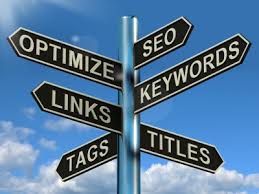Keywords and meta tags play a key role in inbound marketing strategies, and when they are done right, marketers can expect much more lead generation, conversions, and traffic in general. However the practice of using keywords and meta tags are also rife with pitfalls and mistakes are easily made; so here are some tips.
Key Word Research:
A fundamental in many processes is research, and the same applies here. Through research, marketers can find the best fitting keywords for their products. For example, if the product in question is a luxury item, avoid words such as “cheap” or “budget”. While some of those excluded keywords may generate more traffic, prospective customers will not find what they are looking for; potentially even viewing the brand as deceiving by using mismatched keywords.
Make a List
Simple but effective, by making a list of keywords generated through research, marketers can save a lot of time and energy. Create a list for each aspect or factor that can be associated with the product or the brand in general; compiling all of them into one master list for easy access and a time saver in future marketing campaigns.
The Buyer’s Mindset
Entering the buyer’s mindset, and thinking like a customer will allow marketers to see their brand from a different angle. Changing perspective can often reveal keywords that can be associated with the brand from a buyer’s point of view, for example with a luxury item, “expensive”, “high-end”, or “posh”.
Don’t Be Afraid of Long Keyword Chains
While they seem clunky and impractical, long chain of keywords (long tail keywords) are becoming more widely used in online searches. Buyers are coming more and more specific and precise in the product they are searching for, so specific and long chains of keywords are being used more frequently by buyers. Potential customers who use long tail keywords also have a higher conversion rate.
Understand and Use Meta Tags
Meta tags refers to text that would appear in various key locations of a website, all of them will help increase the site’s search engine rank. These can be things such as page titles, meta descriptions (text that accompanies the search result listing for the site, usually offering an insight into the contents), and meta keywords (hidden keywords that are embedded into the site’s code, invisible to the average visitor to the site). By ensuring that every page of the website has meta tags, search engines can offer potential visitors a transparent image of what the site, and by extension the brand, offers, increasing conversion rate.
Be Responsible, Don’t Abuse Keywords and Meta Tags
While keywords and meta tags are a great help, abusing them will ultimately reflect badly on the brand’s image. Using deceptive or un-associated keywords to trick visitors is a common form of keyword abuse, similarly with meta tags. Meta tags abuse can also include an overabundance of meta keywords hidden in the site’s code that has nothing to do with the site. If visitors are drawn to your site through dishonest means, brand reputation will suffer, through honest use of keywords and meta tags, the right audience will be attracted thus ensuring both revenue and a good brand reputation.
For more information or help regarding usage of keywords and meta tags, please contact us by clicking here.
